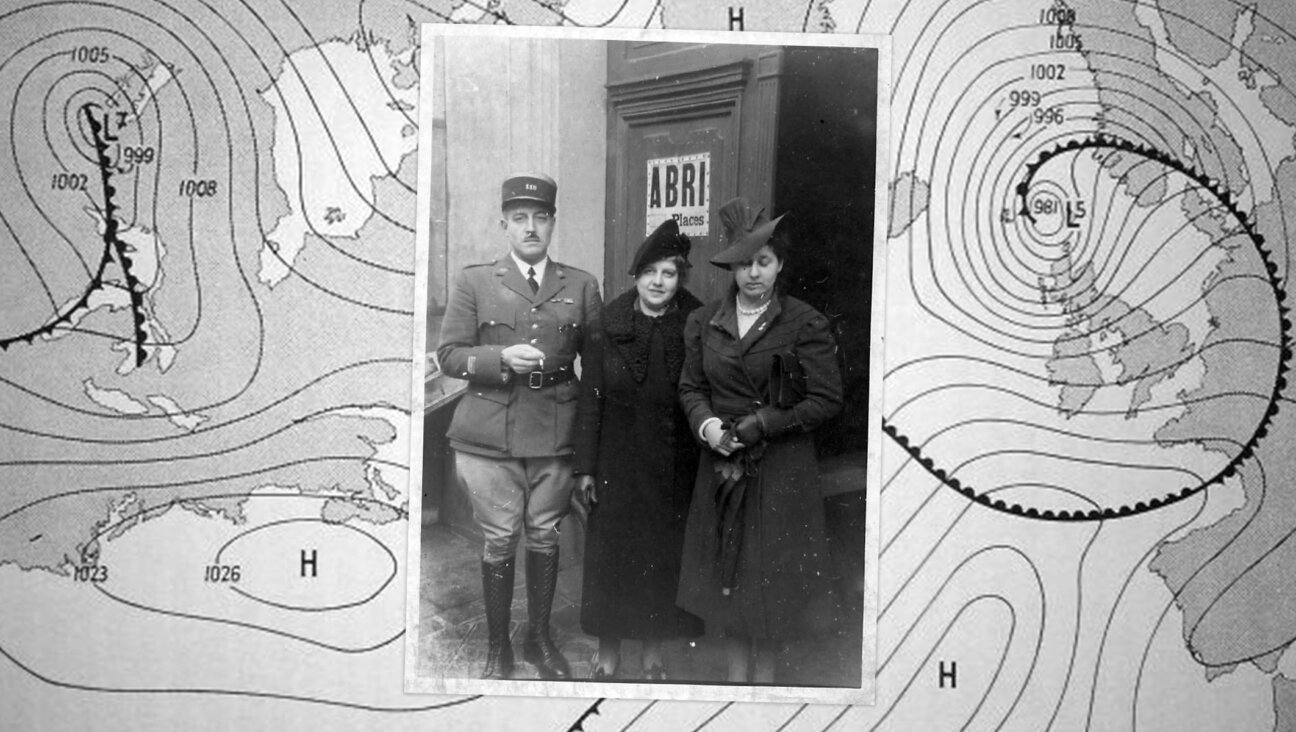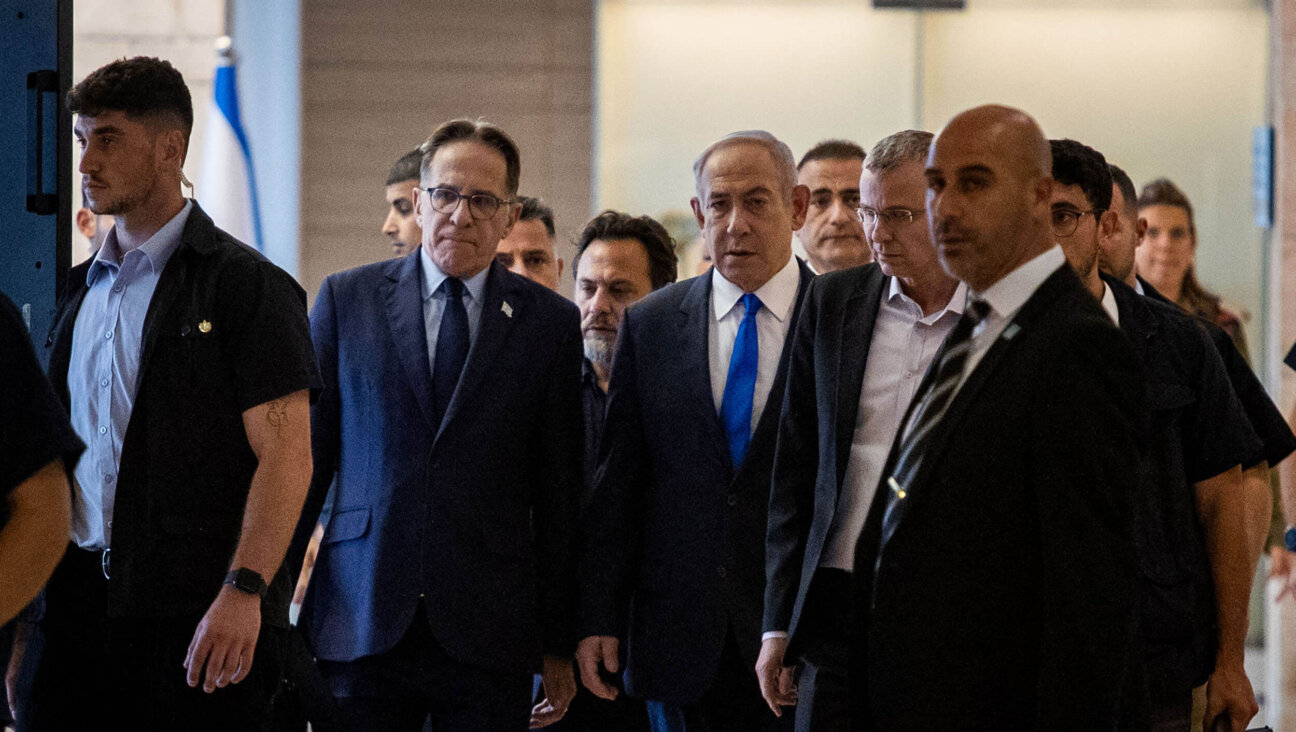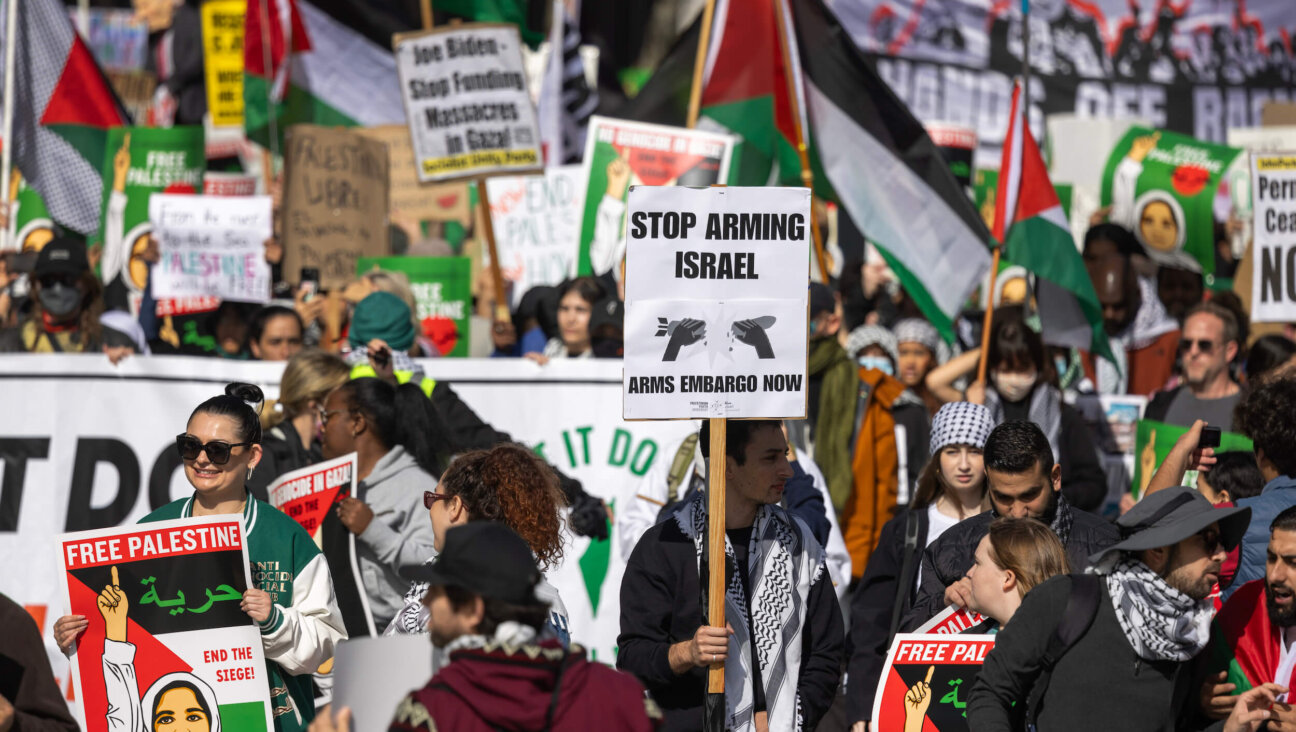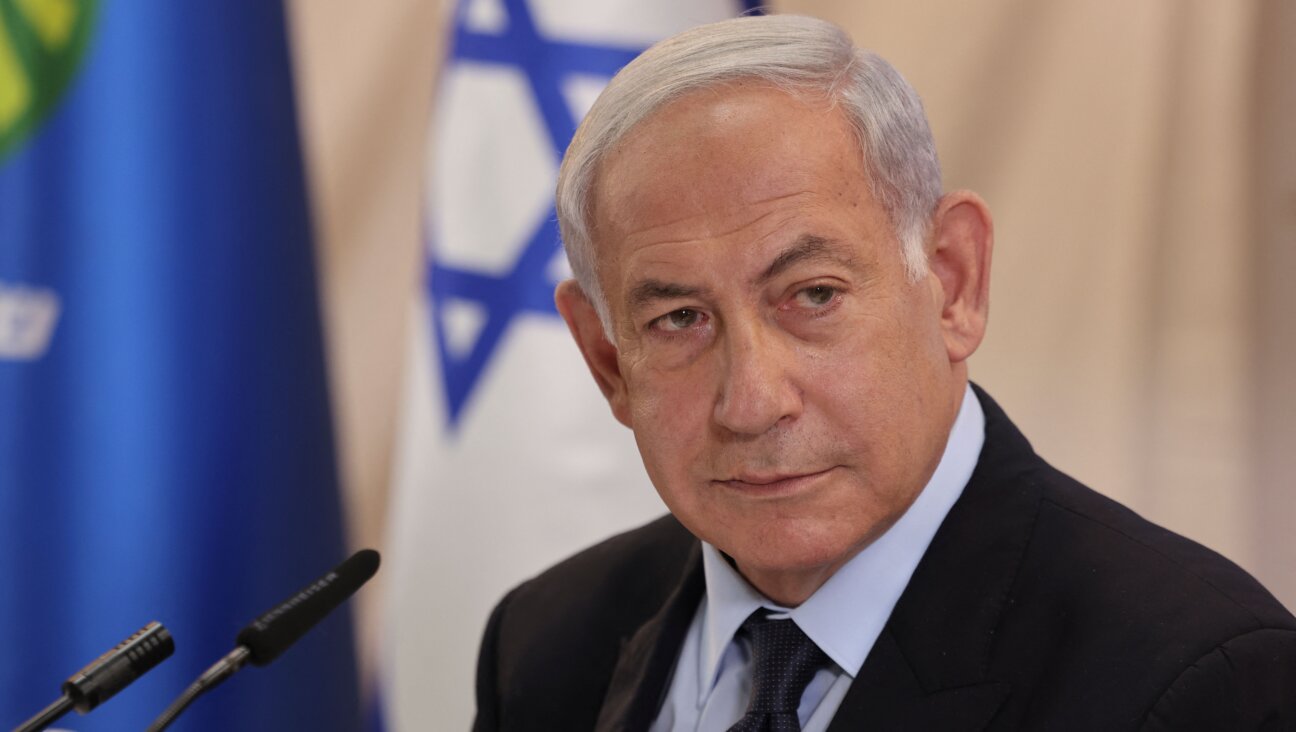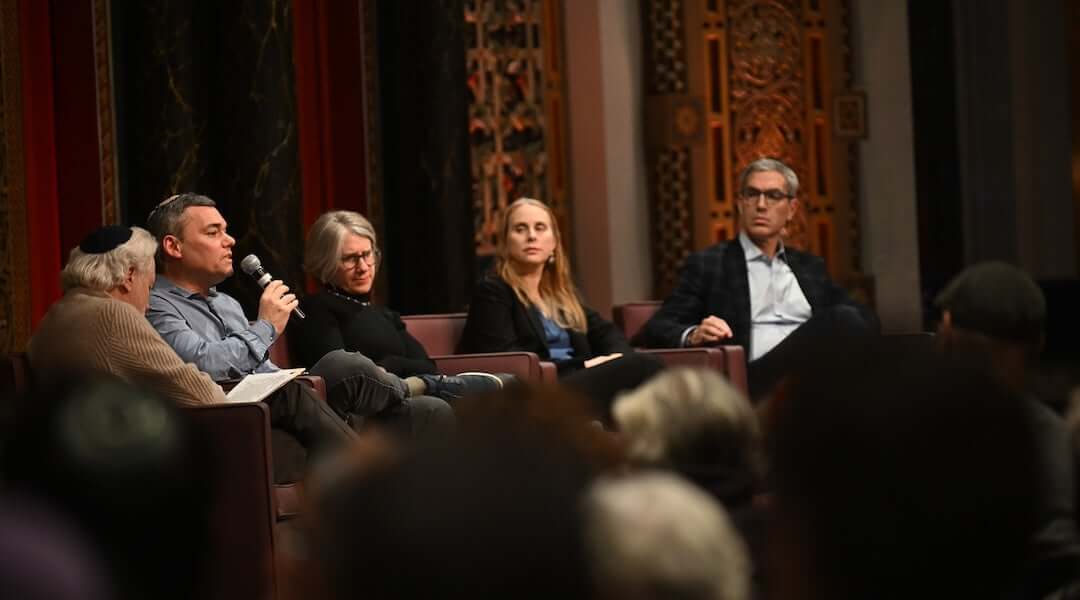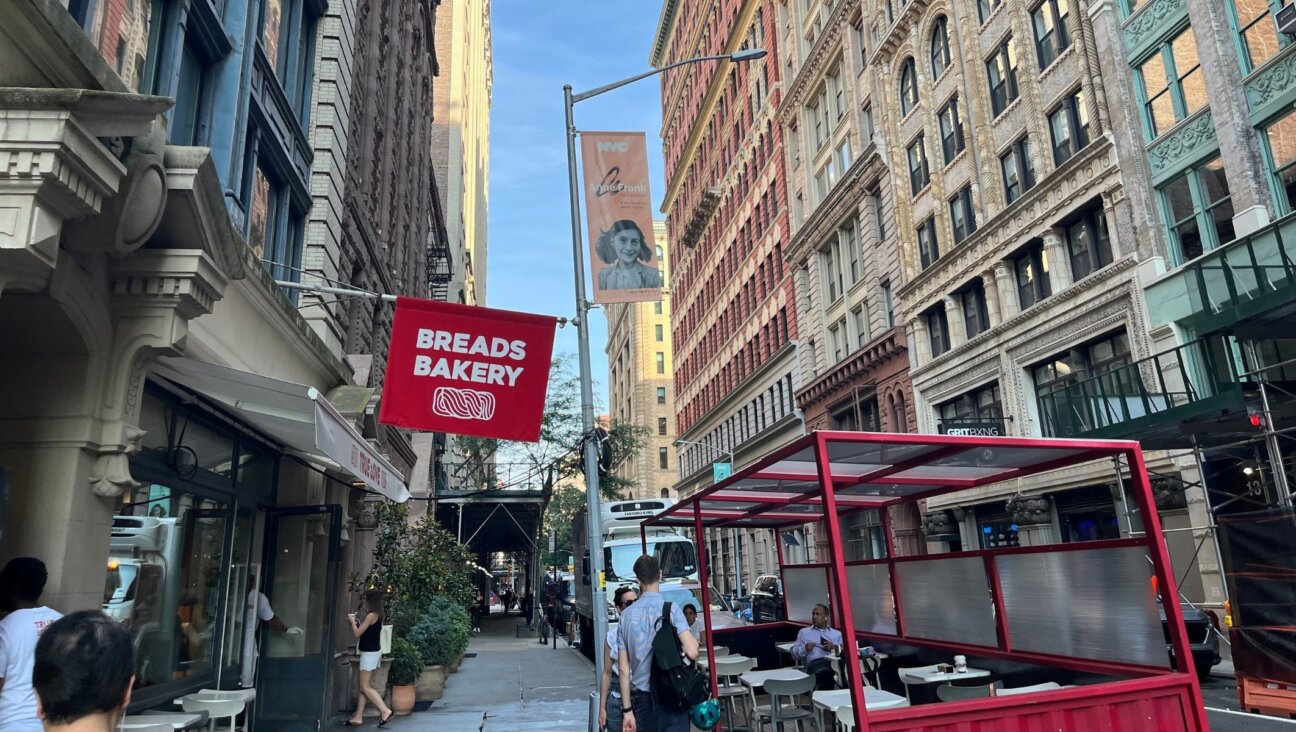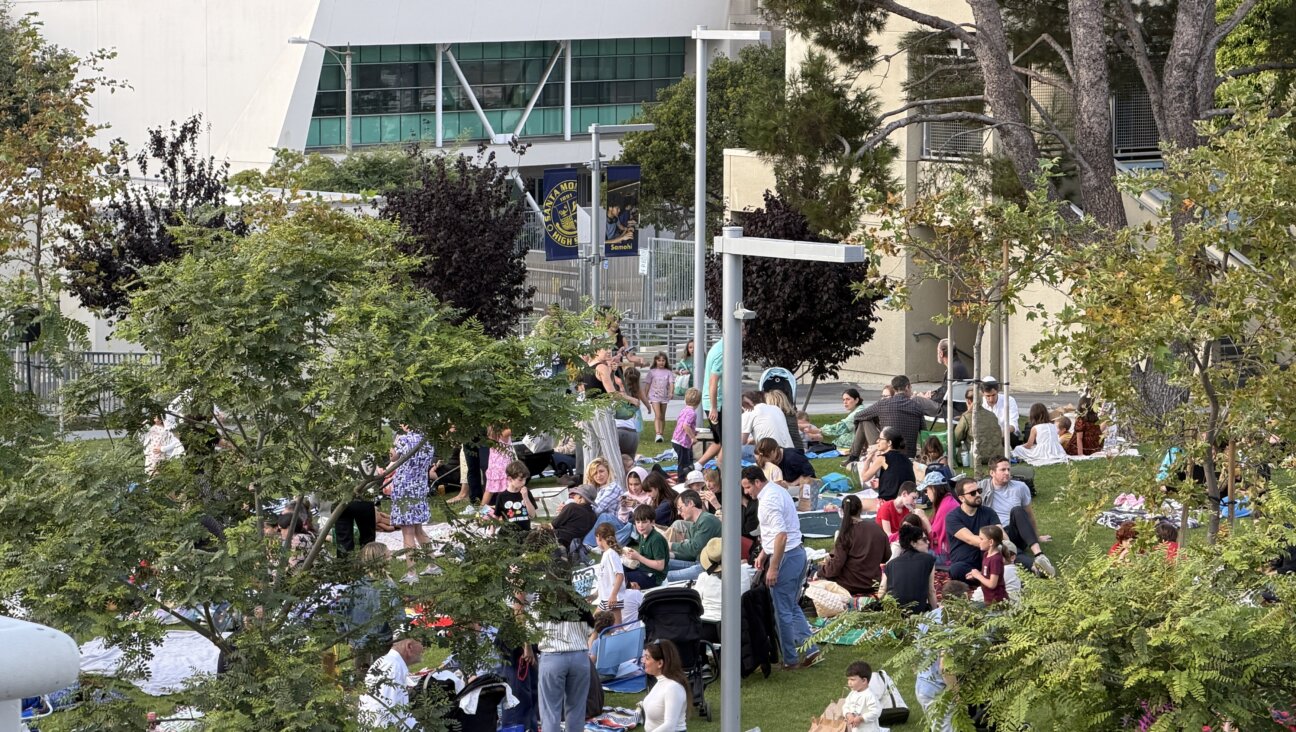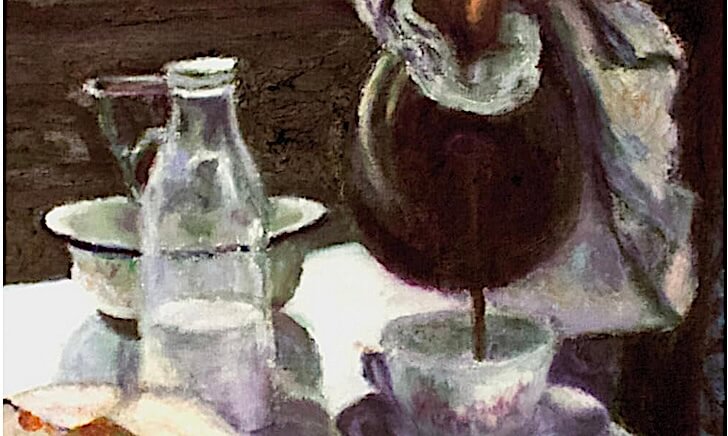Looking ForwardI spent months praying for a single Israeli hostage. Yesterday, I found out he’s dead.
The more I think about Uriel Baruch, the more I wonder about the Palestinian victims whose names and faces I do not know.
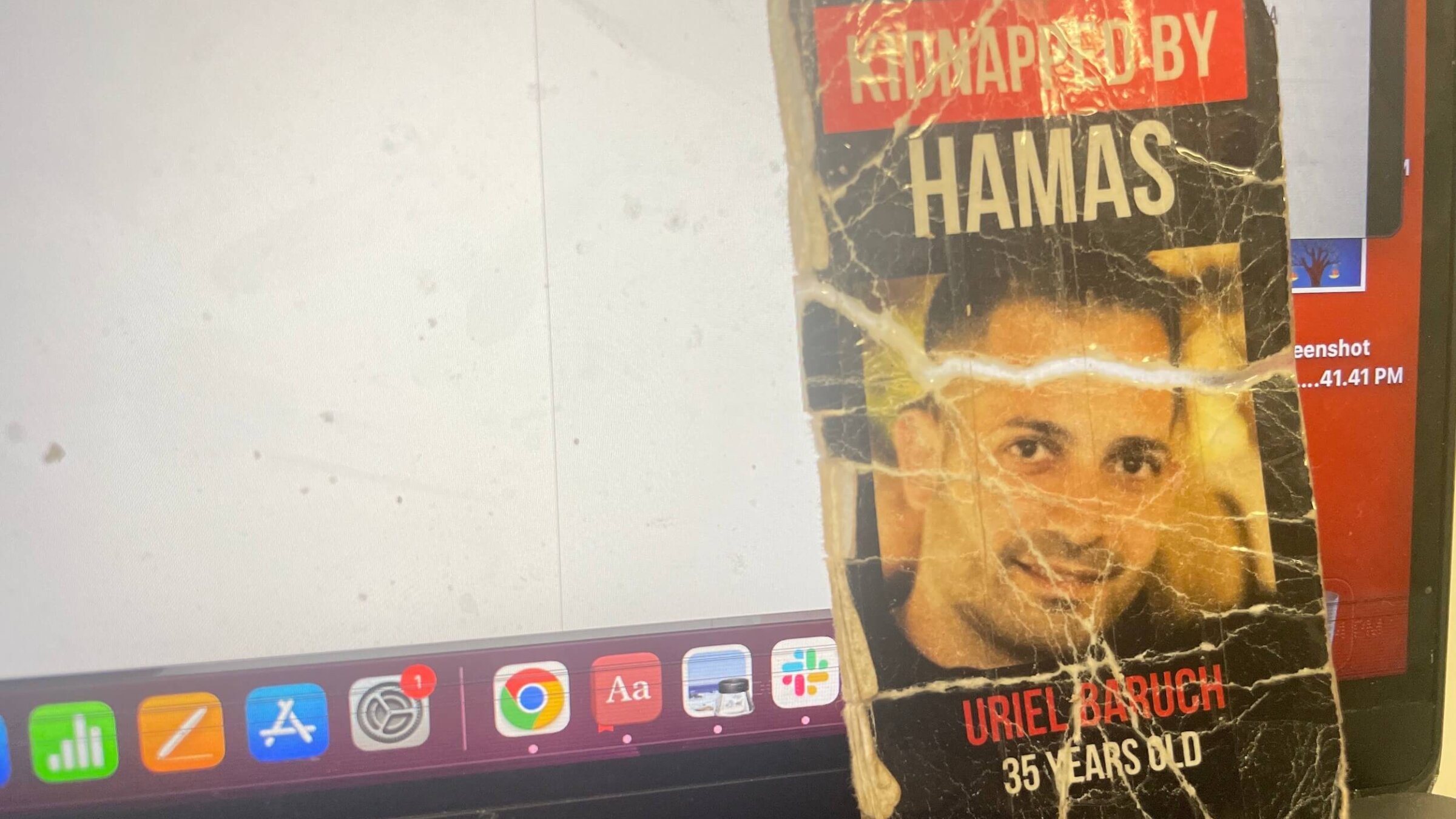
After months of carrying Uriel Baruch’s card in my bag, I had to use clear tape to cover its creases and cracks. Photo by Jodi Rudoren
I said kaddish this morning for a man I never met, but who I have been thinking about every day for months.
Uriel Baruch worked in construction and had two sons when he disappeared from the Nova music festival on Oct. 7. His name and face were on a card I was randomly given at a vigil for the 240 people taken hostage by Hamas that day. I’ve carried that card with me ever since, and, whenever I’m in synagogue, said Uriel’s name and conjured his face during the prayers for the captives or for healing.
I discovered that Uriel and I shared a birthday, Nov. 30. (I’m 18 years older.) And when I went to Israel last fall, I got to spend the first night of Hanukkah with his family, watching his younger son, Ofek, light the candles in front of a picture just like the one in my bag. Last week, I made Uriel’s favorite coconut-covered chocolate-ball cookies for Purim.
And on Tuesday I learned he is dead.
It turns out that Baruch was killed, not kidnapped, on Oct. 7, according to a video the Israeli military said it only just discovered; his body was taken to Gaza, where it presumably remains today. A tiny new bit of terribleness in a crushing sea of it. I took out the card, now with clear tape covering its cracks and creases, looked at Uriel’s face, and tried to figure out what to feel.
The idea of the cards was to humanize and individualize the hostages, which resonated with me. But the overwhelming scale of the suffering among Palestinians in Gaza in the nearly six months since the attack has made it more complicated. Where are the cards with their names and faces?
That contrast hit me hard a couple of weeks ago at Friday night services. Each Shabbat, my synagogue, Temple Ner Tamid in Bloomfield, New Jersey, shares the story of a single Israeli captive in the middle of our prayer for their release. It is, like the cards, a noble notion.
But that evening, as our student rabbi read paragraph after paragraph detailing the life of Dolov Yehud, 35, whose wife gave birth to their fourth child nine days after his abduction, I stirred uncomfortably in my seat. I kept thinking about the thousands of civilians killed in Gaza whose names and faces and details I will likely never know.
Yes, I have absorbed the awful story of Yazan Kafarneh, the 10-year-old Palestinian boy with cerebral palsy who has become “the face of starvation in Gaza,” as The New York Times headline put it. I have scanned the lists of dead children’s names posted on Al Jazeera.
I know enough to know that I do not know enough about them.
Of course, I don’t really know enough about Uriel Baruch, either. I know that he and his wife, Rachel, a hairdresser, went on their first date at Jerusalem’s Machaneh Yehudah market, and that guests at their wedding danced until 3 a.m. I know he had three brothers, and that about a week before the Oct. 7 attack, he went with one of them to a restaurant, where Uriel invited a woman celebrating her birthday alone to join their table and bought her a cake. I know that his younger son, little Ofek, is a superfan of the Israeli superstar Noa Kirel; I watched him dance to her music.
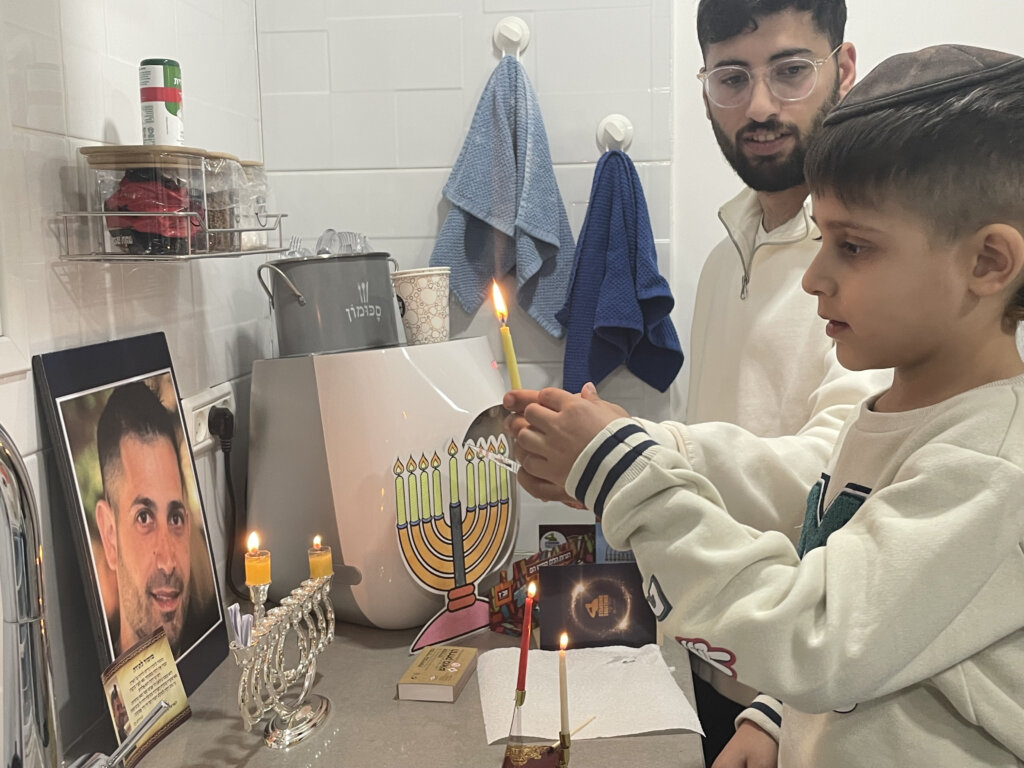
I know that the family spent days after Oct. 7 scouring every hospital in Israel for Uriel, to no avail. And that on the 11th day after the attack, the army came to inform them Uriel was considered “missing”; another week passed before he was officially added to the list of the kidnapped, before his name and face were printed on cards like the one in my bag.
And then, 151 days on, a new story. “Yesterday, the army found another movie from the Hamas, and they saw Uriel there,” Rachel Baruch’s father, Dan Anteby, told me on Tuesday, referring to a video from Oct. 7 that shows the murder. “We are strong and we will pass this tragedy,” Anteby added. “I am really thanking you for sharing our pain.”
And so I went this morning to say the Mourner’s Kaddish for Uriel Baruch, instead of praying for his release.
The news was a stark reminder of the strangeness of this hostage situation. One of the reasons ceasefire negotiations are not going anywhere is because Hamas seems unable to provide clear information about how many of the 134 people still counted as captives are alive, or where they are being held, amid the ongoing Israeli bombardment and broader chaos in Gaza.
It’s jarring to imagine that the Israel Defense Forces is still, now, finding new video and other evidence about the details of Oct. 7 — or that it is taking them an awfully long time to inform families (and the public). Anteby told me that Uriel’s parents “didn’t say anything; they can’t speak, it’s a shock.”
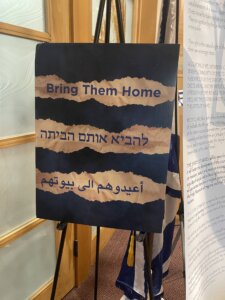
The Reconstructionist synagogue I went to this morning, Bnai Keshet, has a post outside its sanctuary that says “Bring Them Home Now” in English, Hebrew and Arabic. Its rabbi, Elliot Tepperman, had been the speaker at that November vigil I attended who introduced the idea of holding onto the hostage cards and focusing on one individual.
So he seemed the perfect person to talk to about Uriel’s death, as well as my discomfort with what I don’t know about the many thousands of civilians in Gaza killed in the war — who are also, to some extent, being “held hostage” by Hamas.
Rabbi Tepperman told me that his congregants had expressed similar concerns about praying for individual captives but not individual Palestinians, and that he had reached out to some local Palestinian groups to get names of New Jersey residents with relatives in Gaza, to no avail.
“It just wasn’t the right gesture,” he said.
Then Rabbi Tepperman told me that the hostage whose card he got at that same November vigil, Yossi Sharabi, was also killed — not on Oct. 7, but 102 days later, inside Gaza. According to an IDF investigation, the building where Sharabi was being held collapsed after an Israeli strike on an adjacent one.
Like me and Baruch, Tepperman had learned what he could about Sharabi. He was 53, and abducted from Kibbutz Be’eri along with his brother, Eli, who is two years younger and believed still alive in Gaza. (Eli’s wife, two teenage daughters, and dog were killed on Oct. 7.) Their sister Osnat created a trail of sneakers, sandals and slippers along a Tel Aviv beach to represent the missing hostages in January.
Yossi was a soccer fan and a surfer. He had three daughters. In videos Hamas operatives apparently took of him while he was held in Gaza, the rabbi said, he looked like he had lost weight, and his beard seemed to be growing in newly gray.
Tepperman is still holding onto the card with his face and name.
“The place where I put up his photo in my office, I’ve never taken it down,” he told me. “I still look at Yossi Sharabi almost every day and think about him.”
About him, about Uriel, and about all the victims whose names and faces we do not see.

